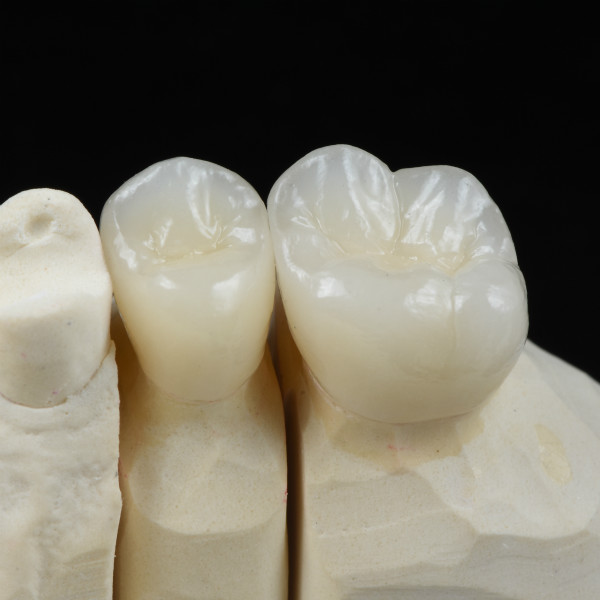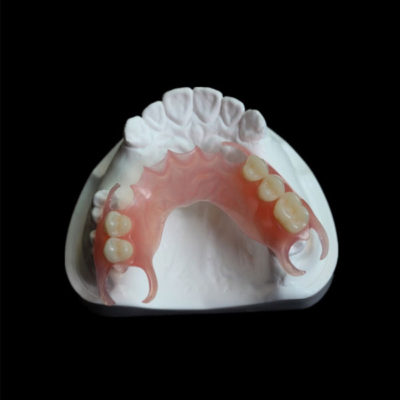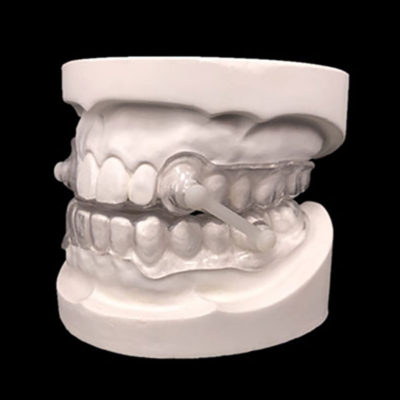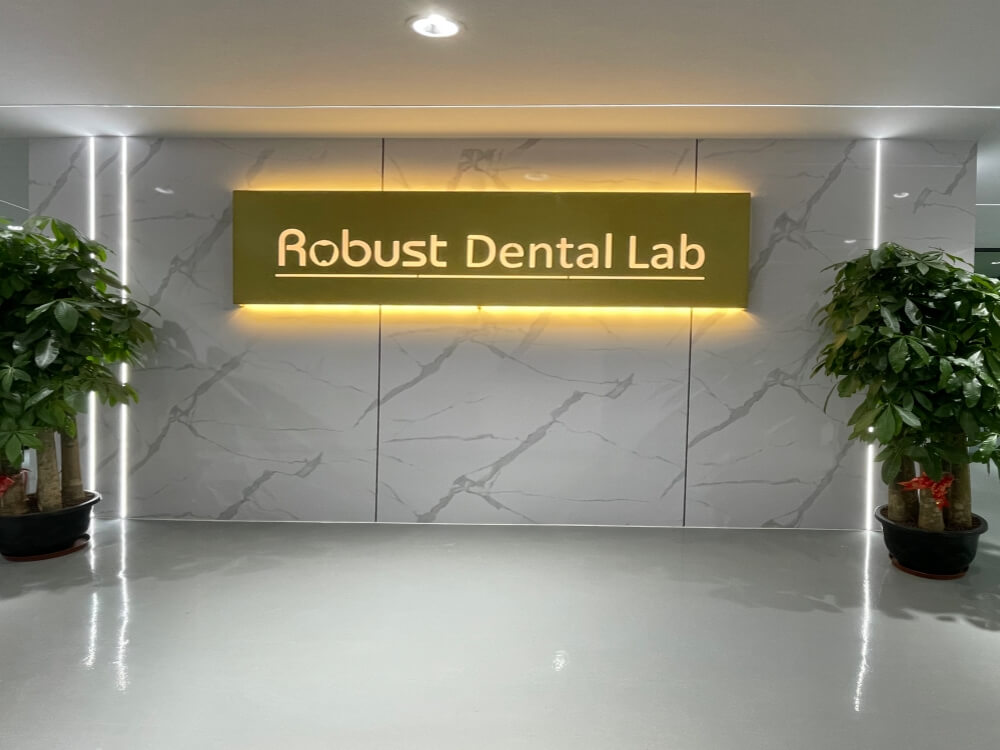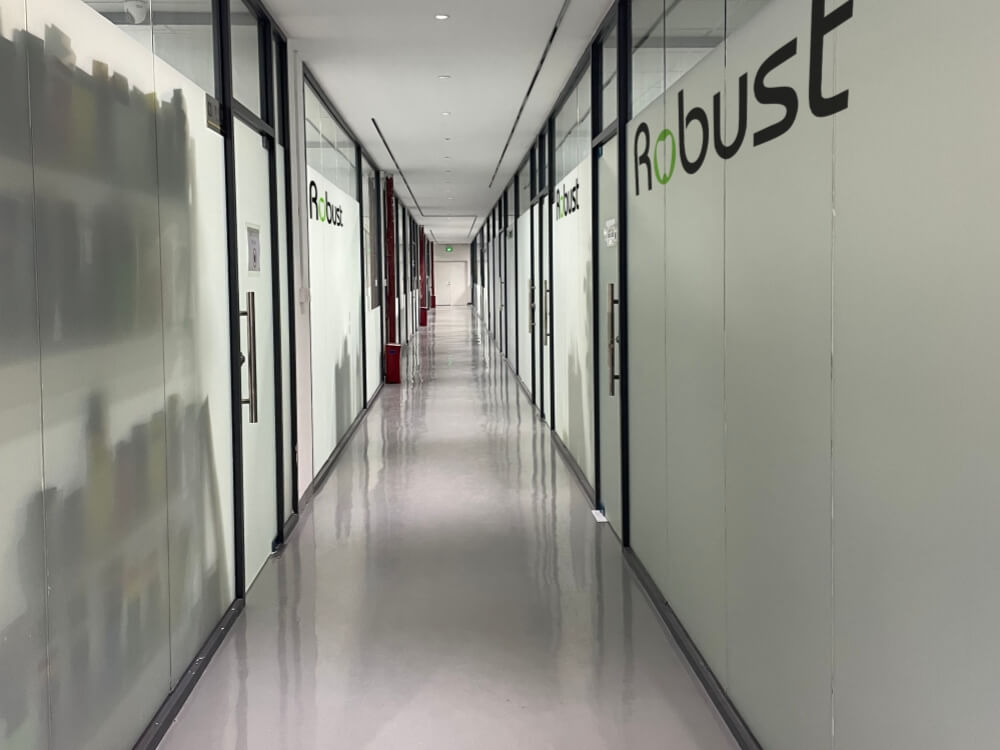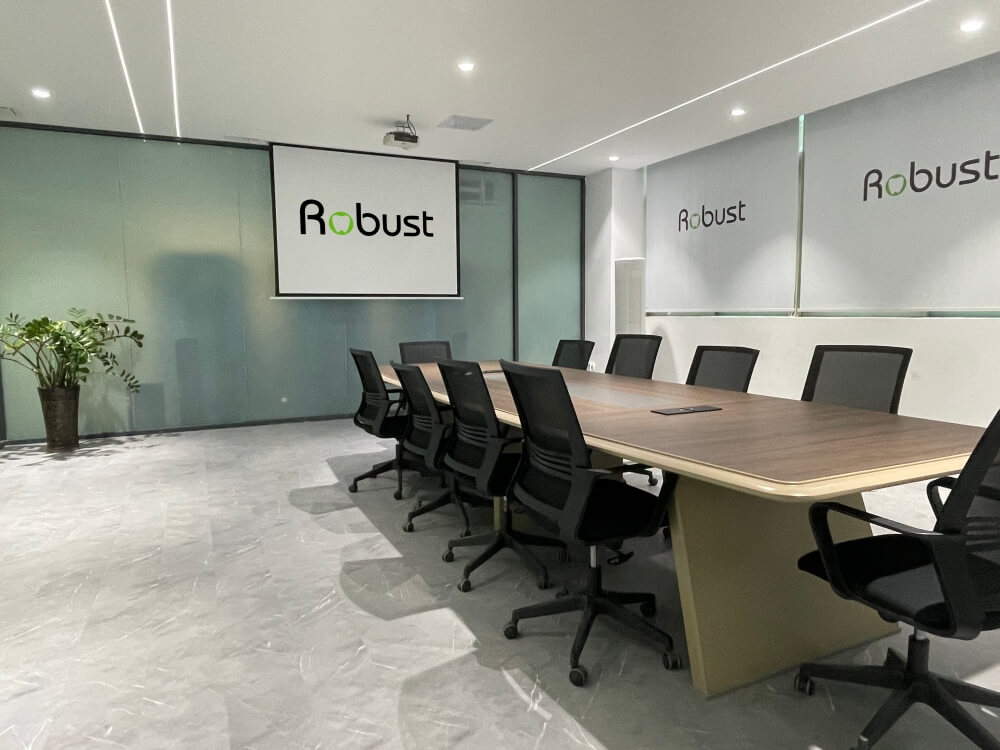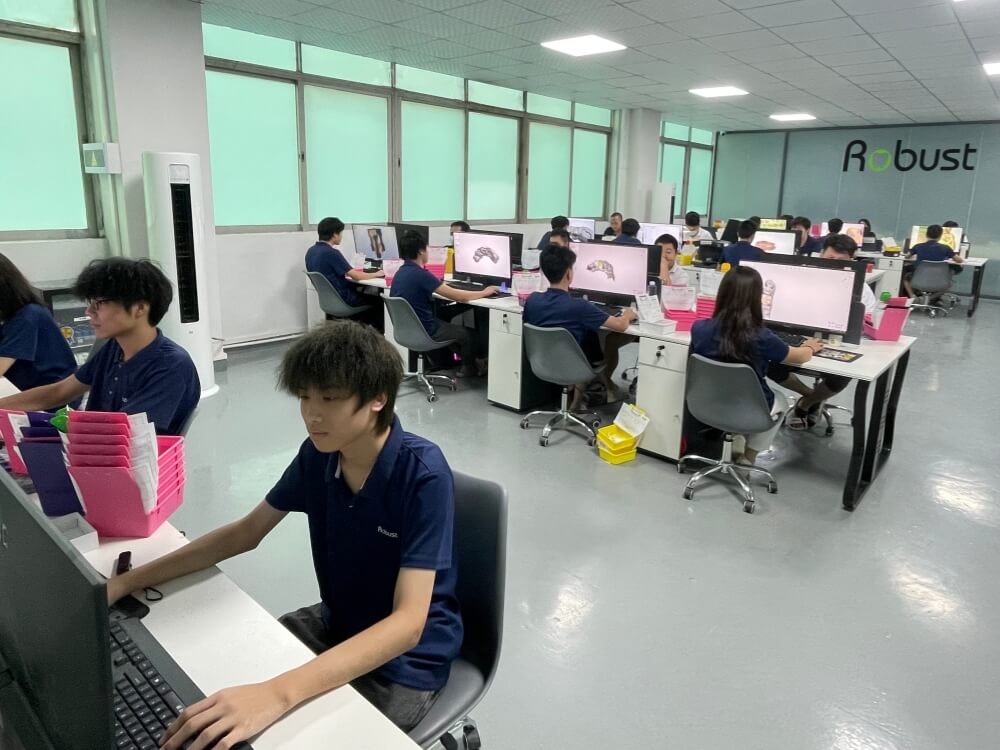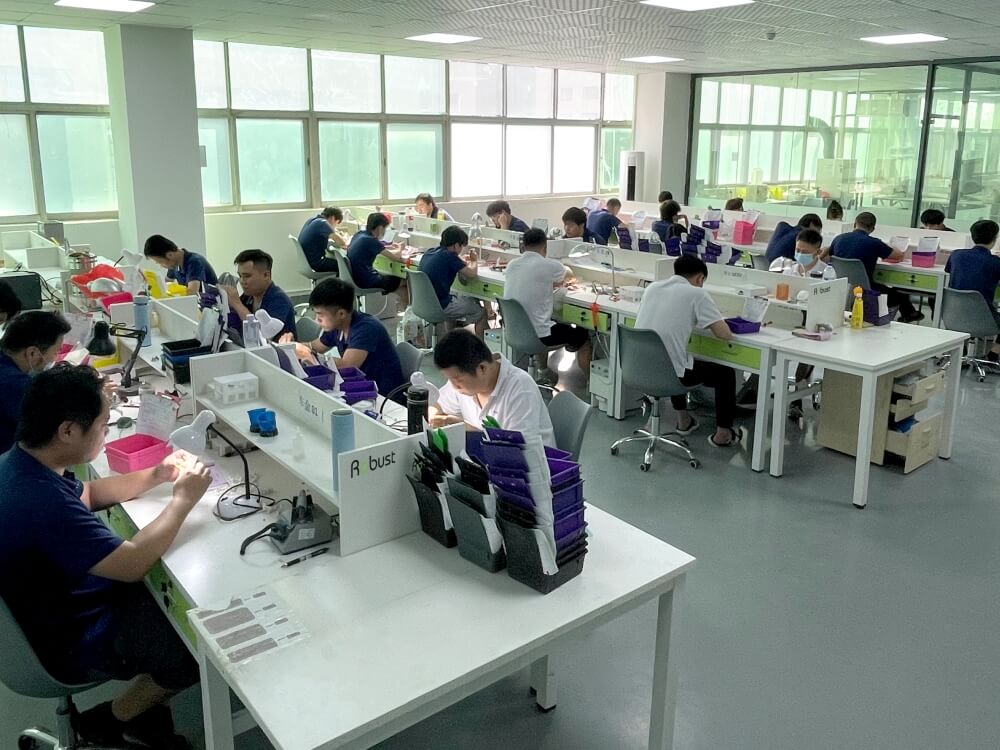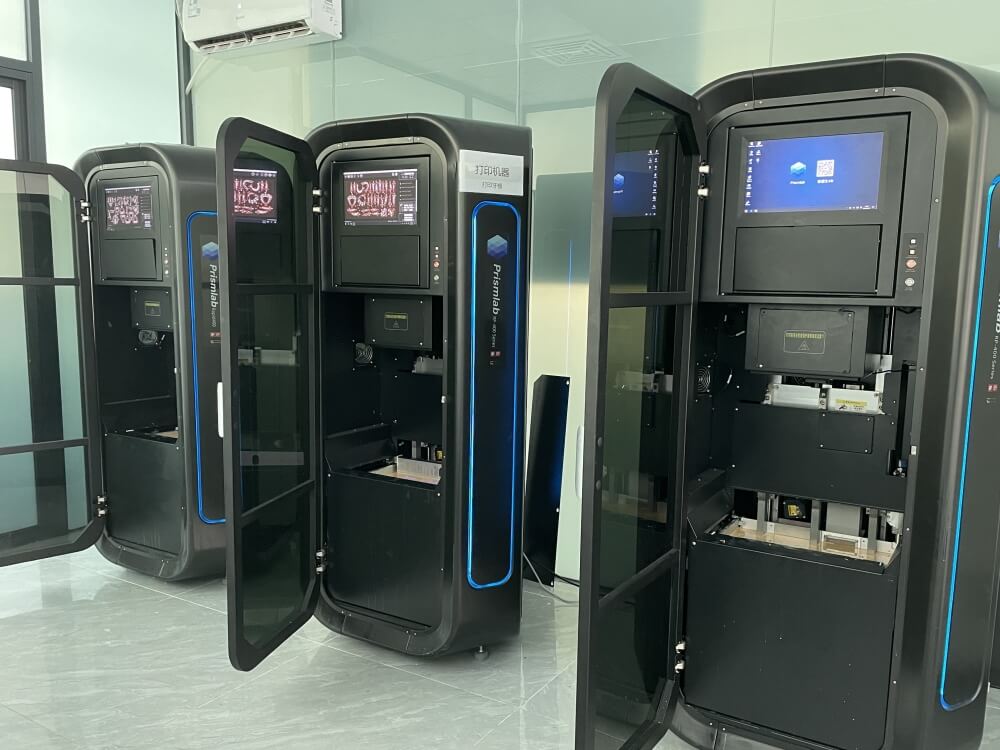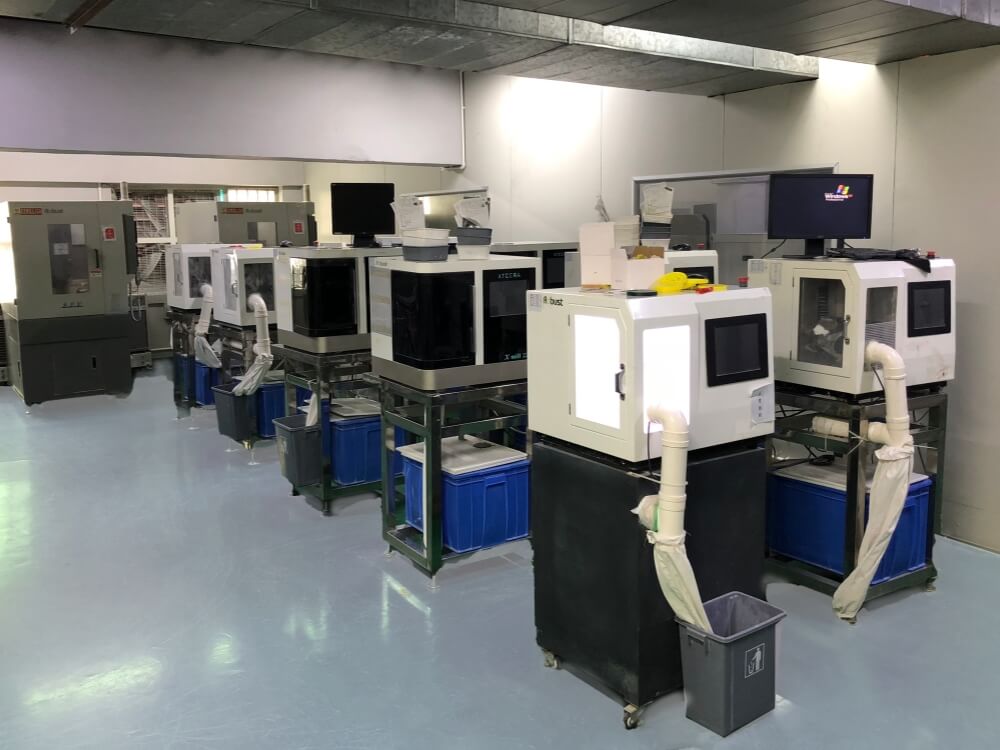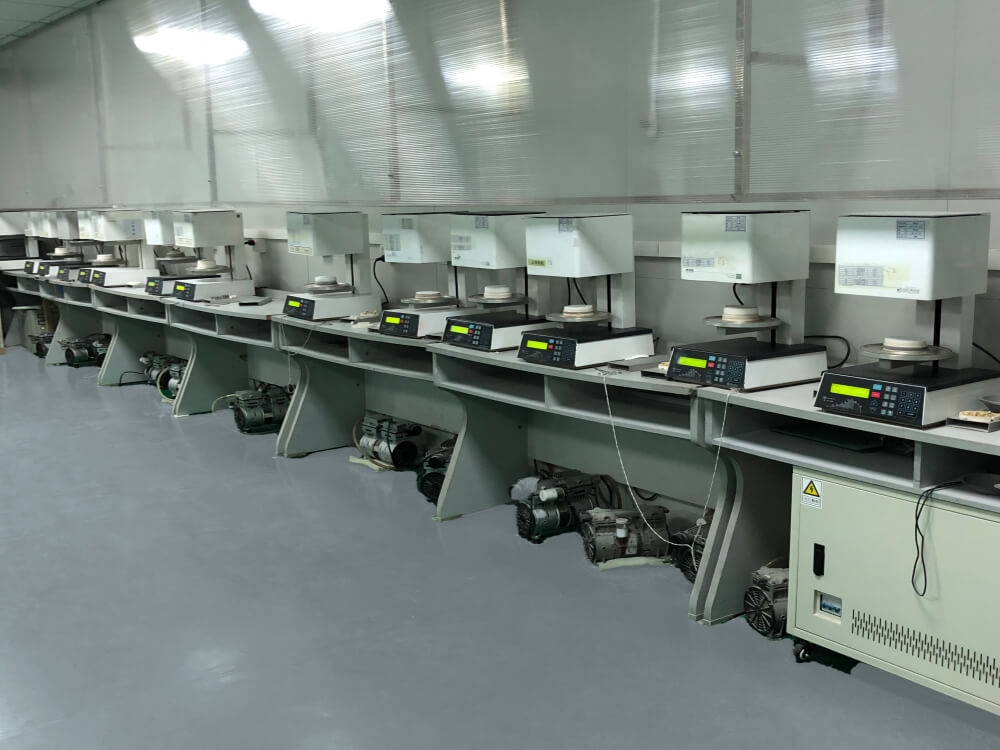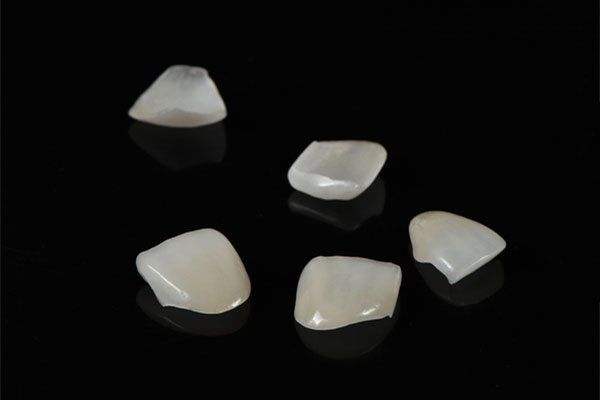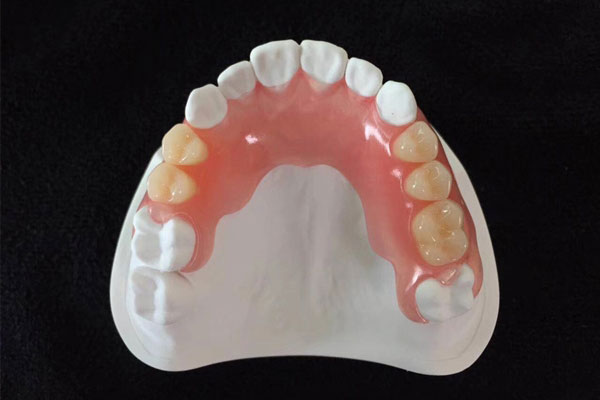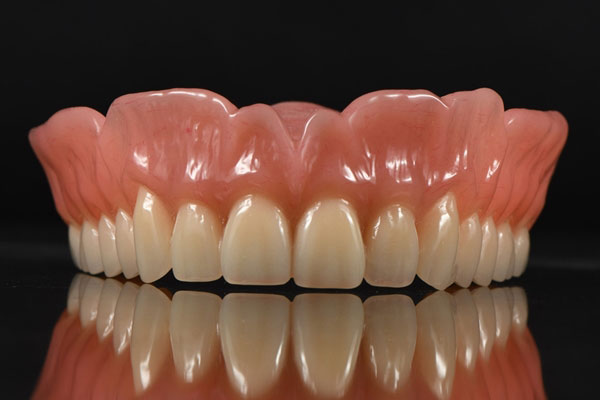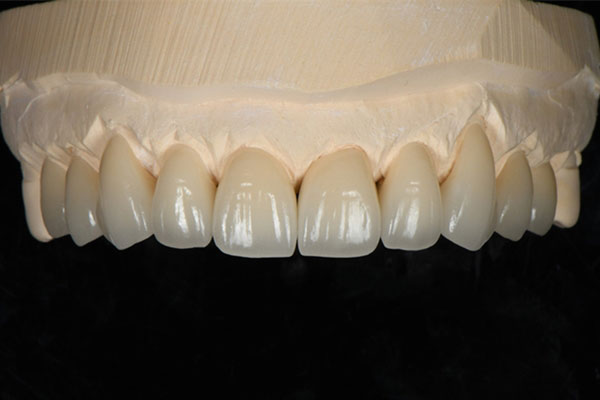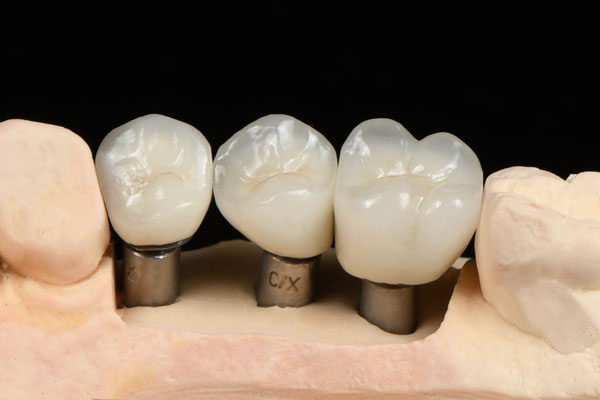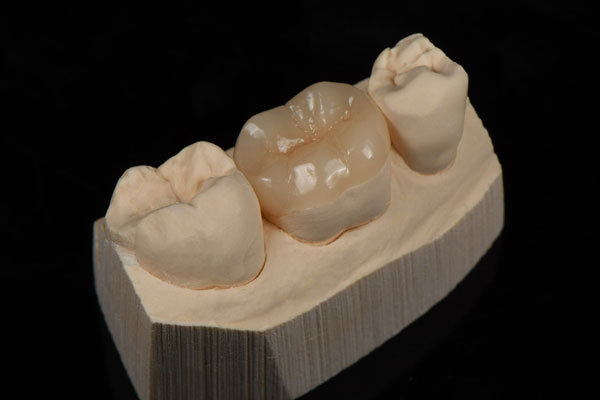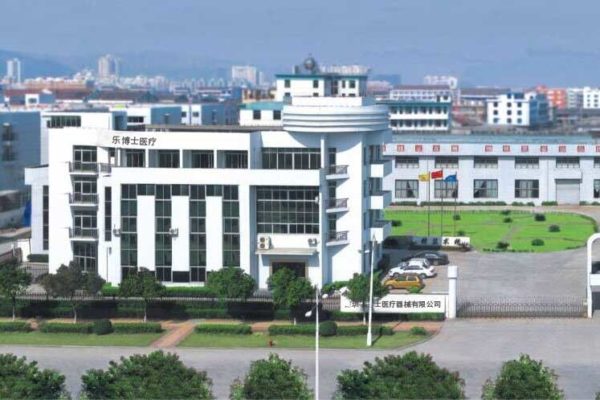One-Stop Dental Outsourcing Service
Robust is a full service dental lab, producing all dental cases in house. Robust provides the same care for dental labs and independent dentists.
Dental Lab Australia Outsourcing Production Time
| Crown/ Bridge/ Veneer/ Inlay (no more than 5 units) | 4 days |
| Crown/ Bridge/ Veneer/ Inlay (over 5 units) | 5 days |
| Crown/ Bridge/ Veneer/ Inlay (full mouth) | 8 days |
| Post Core + Crown/ Bridge | 6 days |
| Implant Abutment + Implant Crown/ Bridge | 6 days |
| Framework Only | 3 days |
| Teeth Set-up for Try-in Only | 3 days |
| Acrylic/ Flexible Straight to Finish | 4 days |
| Framework + Acrylic/ Flexible Straight to Finish | 5 days |
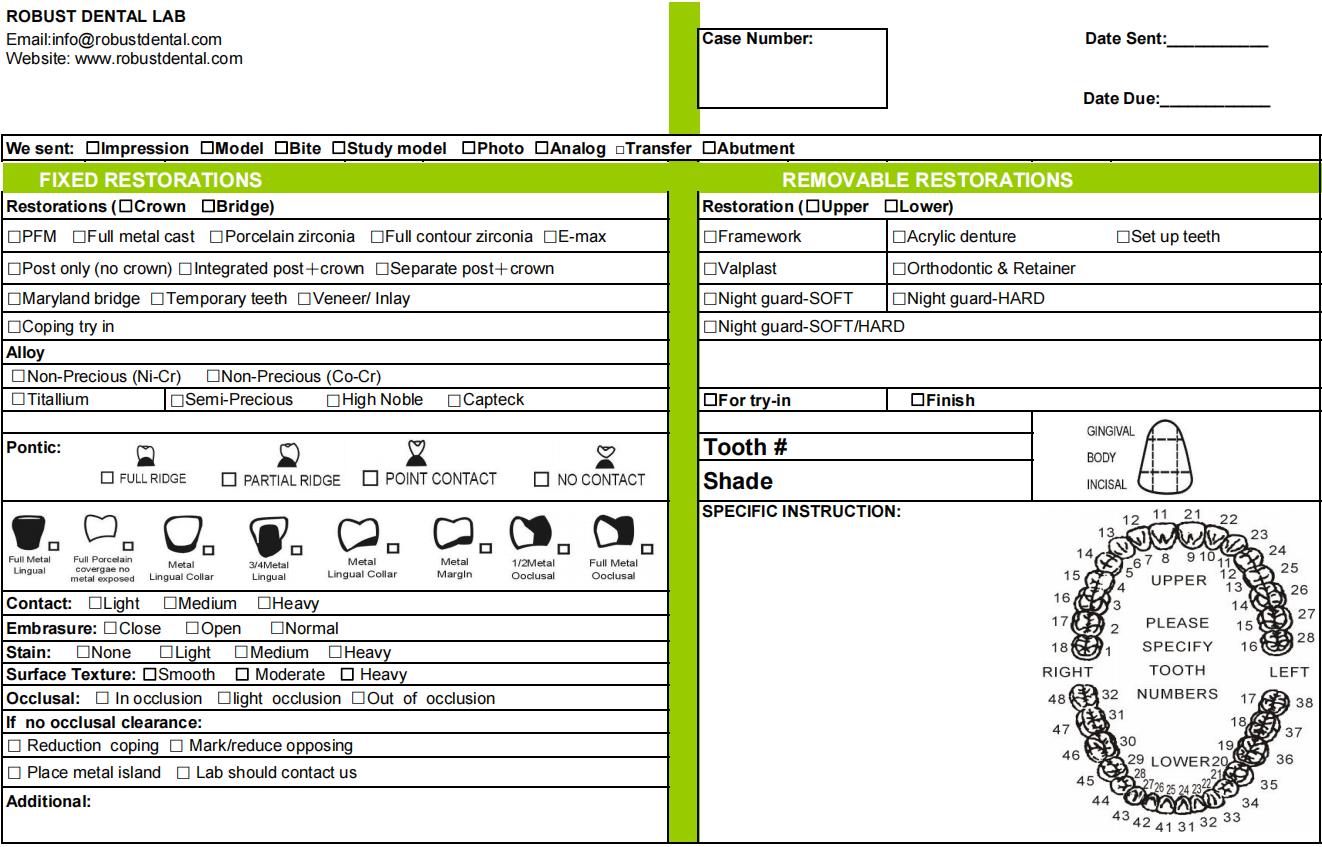
- Acrylic Full Denture
1. What is an Australian Dental Lab?
The dental laboratory is a vehicle for good, advanced dentistry. They are used to make or customize a wide variety of products, including crowns, dentures, bridges, and other necessary dental products. Restorers want to have a dental laboratory to ensure that their patients are provided with the best quality products.
Dental laboratories can customize their products to suit each patient’s needs. This ensures that dental surgery is safe and effective for patients. Dental labs are flexible in that they allow restorative physicians to create customized solutions and programs for their patients.
2. What are the functions of a dental lab in Australia?
The Australian Dental Association says dental laboratories manufacture:
- Provide complete dentures for tooth loss;
- Partial removable dentures for patients who have lost one or more teeth;
- Restoration of dental bridge in one or more tooth loss;
- The crown restores the tooth to its original size and shape;
- Veneers that enhance the product’s appearance and function;
- Splints and orthodontic devices to correct and protect the teeth.
Dental labs use a wide variety of materials. The products include wax, plastic, precious and non-precious alloy, stainless steel, ceramic, composite, or polymer glass. These include crowns, bridges, dentures, and other dental products. The dental laboratory technician is required to follow the prescription of a dentist, including the prescription of restorative materials (such as false teeth and implants) and therapeutic materials (such as orthodontics). Dental technicians are experts in making these products, and they use sophisticated equipment and tools to carry out laboratory work. First of all, it’s not just a matter of making functional pieces, it’s also about making them attractive. Patients should be satisfied with the appearance and function of their products.
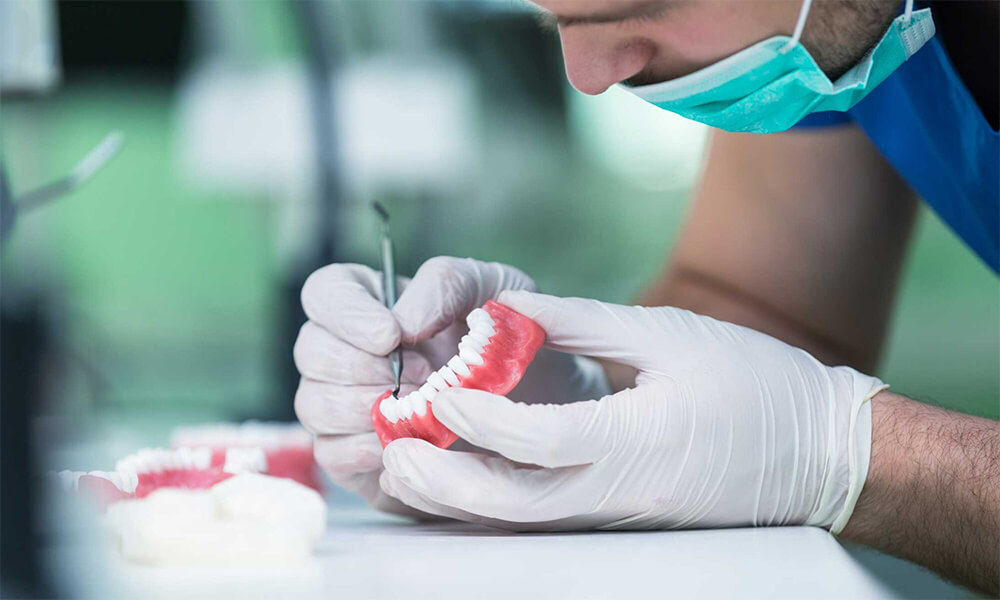
3. What products does dental lab Australia offer?
To meet the needs of different patients, The following products dental lab Australia offer:
1) Crown & Bridge Restorations
- Ultra Translucent Monolithic Zirconia
UT Monolithic Zirconia is well known in the dental industry for its high transparency and excellent aesthetics, while not compromising its strength. UT Monolithic Zirconia is more durable than other all-ceramic restorations, so it is suitable for large front cases, implant restorations, and anterior or posterior bridges.
- Layered Zirconia
Layered Zirconia is suitable for both small and big front cases and complete mouth restoration where a more natural but high aesthetic effect is desired. In addition, Layered Zirconia may mask the darker stems and make sure that the base color is not visible.
- IPS e.map
IPS e.Max offers similar properties in terms of high aesthetic qualities as Layered Zirconia. However, the end product can be achieved with a minimum layer of porcelain or a complete outline stain. IPS Emax restoration requires a stump shade to ensure that the final shade is not influenced by the underlying teeth. The bridge connectors are not strong enough to withstand force, so it is not recommended for bridge restorations.
- IPS e.Max
IPS e.Max Veneers are preferred to other all-ceramic veneers because they require little preparation and provide impressive bonding techniques. They create a high aesthetic that is made up of natural contours and shades.
- PFM Porcelain Fused
The Porcelain Fused to Metal (PFM) restoration is known for its aesthetics, bonding, and strength. Additionally, they’re recommended for cases with extremely dark stumps. Although all ceramic materials are very popular, classical PFM still offers outstanding performance.
- Full Metal
Complete metal restorations, with their smooth surface, limit bacterial retention and are ideal for situations where the occlusal space is limited. In addition, they’re well-known and recommended for their longevity, durability, and versatility. Complete metal restorations can be manufactured in either non-precious alloys, semiprecious alloys, or precious gold alloys. These alloys vary in price which ensures any budget can be met.
2) The Implant Crown Bundle
The Implant Crown Bundle comprises:
Choose your Material (UT Monolithic Zirconia, Layered Zirconia, or PFM)
- A Screw Retained or Cement Retained Crown
- Implant Implant Replica
- Tissue Model
- Implant Ti-Base
We have a close relationship with all of the Australian and foreign implant companies. As a result, we are able to perform all kinds of implant restoration. Please contact our implant specialist for any special quotation or plan for other types of restoration outside of the implant bundle.
3) Modeless Restorations and 3D Printed Models
- Printed Models in 3D
Dental Laboratory receives an intraoral scan, we will design a reconstruction using our CAD software, as well as a 3D model to complete the Melbourne appliance. The advantage of printing the models is that our technicians can more effectively check for contact, occlusion, and bite to make sure that they are properly fitted.
- Modeless
Dental Laboratory is now offering a modeless, full-profile restoration (UT Monolithic or e.Max Colored) in which we only print one die. This will allow dental practitioners to minimize their expenses, as less expensive repairs are more cost-effective, and by not printing the models, the dentist will save room in his office because he does not have to keep more than one of the old models in his office.
4) Occlusal Splints
- 3D Printed Occlusal Splints/Clear Splints Flexible
Flexible 3D Printed Occlusal Splints and Clear Splints are made of hard/soft material. Both are effective against teeth grinding and bruxism. It relieves the pain and prevents the patient’s teeth from continuing to break. They are self-adjusting to increase patient comfort.
- Bimetal Laminate Splints
Bi Laminate Splints are made of a flexible material, meaning that they are intended for very mild bruxism only and to protect the crowns and veneers during sleep.
- Michigan Splints
Michigan Splints are made of tough material. They are ideal for patients who experience extreme bruxism and tooth grinding. Also, we can make them with a metal ball clip for additional retention.
- Essix Retainer
The Essix Retainers are made of thin, transparent material. They are ideal for patients who have recently received orthodontic treatment as they prevent tooth migration. Because of their relatively thin nature, Essix Retainers have been found to be more comfortable for long periods.
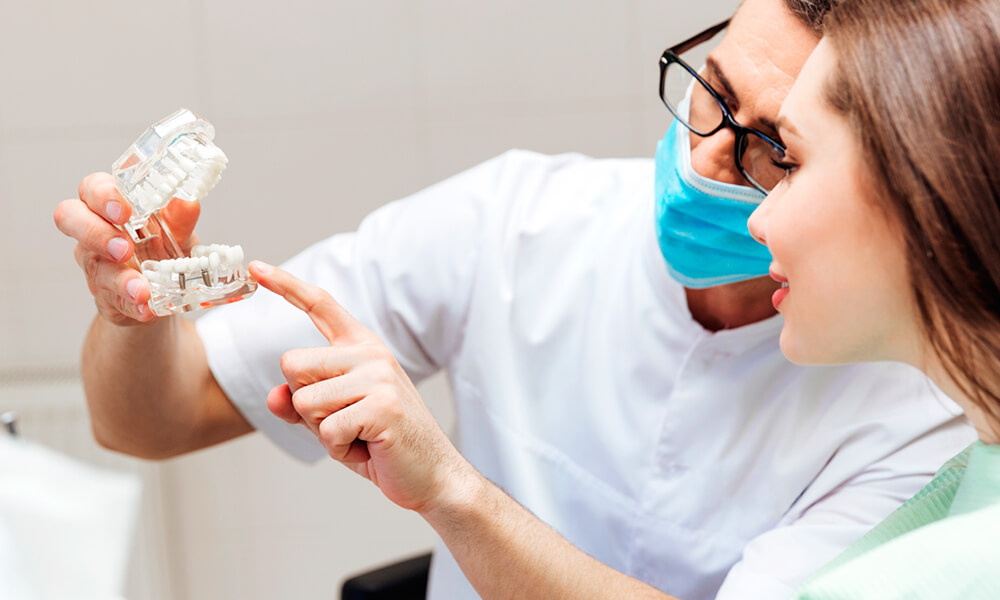
4. What are the benefits of attending a dental lab in Australia?
There are two main advantages of going to an Australian dental lab:
1) Effectively provide a more comfortable and lighter prosthesis
Different dental materials have always been a combination of health, well-being, and beauty. The Dental Laboratory, with its long-standing laboratory experience and innovative production techniques, is capable of meeting the most diverse order book in the industry.
To ensure the highest quality of the client’s order, the manufacturing system of the dental lab preserves the finished product by combining the technique with the stereo microscope, which leads to high yield, low processing cost, and quick execution.
2) Reduce intermediate steps
By using stereo microscopy, dental laboratories can reduce the number of intermediate steps involved in restorations. With DIS techniques, it is possible to visualize the bottom of the gum and the whole circumference of the stump in order to create a perfect fit.
All removable restorations in dental labs must comply with the strictest EU rules to ensure that they comply with European quality standards. That’s why dental laboratory products come with guarantees. With the aid of a stereo microscope, dental LABS can operate more efficiently, reliably, quickly, and economically, because the intermediate steps that lead to higher costs are avoided.
The Dental Laboratory has also adopted a new 3D printing technique, which offers high-quality, customized dentures at a reduced price.
5. What features should the Australia Dental Lab be Equipped with?
Delivery of high-quality dental prostheses is not necessarily costly. For this reason, in order to ensure that your dental products are of the highest quality, you must have all of the following features:
1) Biocompatibility
Dental laboratories shall use materials that provide physiological compatibility with oral tissues. As each patient is different, some of the ingredients may cause an allergic reaction in some people. It is important, therefore, that every device is free from irritants, and allergenic or cytotoxic substances.
2) Ease of Use
Some dental laboratory equipment has a fast setup and manipulation time, which might make fabrication difficult during usage. Dental laboratories should use materials that allow sufficient processing time. It makes dental technicians easy to use and reduces extra costs from manufacturing failures.
3) Shelf-Life
Of course, every dental lab needs to invest in long-lived materials. Ideal dental equipment must be able to withstand wear and tear for a long time. In addition, this factor is important in the sense that the material is capable of being stored without further protective measures.
4) Strength
Dental facilities are susceptible to variations in temperature and humidity, which may damage the physical properties of any equipment. The strength of the equipment varies according to its usage. Ideally, they should withstand any risk of breakage and enable the technician to use the device without being liable for the damage.
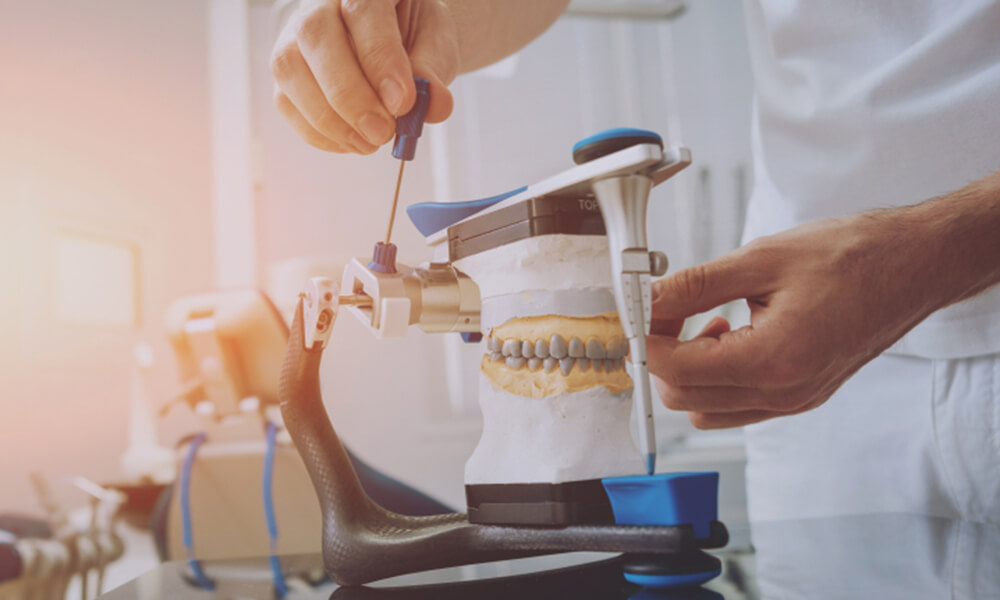
6. What are the common equipment Australia Dental Lab must-haves?
The first step in providing successful dental care is making an accurate dental diagnosis. However, we cannot ignore the importance of the dental laboratory. Dental laboratory technicians must also apply their expertise in dental equipment and prosthetic fabrication to provide comprehensive treatment. Like most dental practices, it is imperative to use high quality dental tools and materials. A well-functioning dental device can play a huge role in reducing treatment failure rates. So, what dental laboratory equipment should your dental practice have? Let’s find out!
1) Dental Microscopes
In most dental labs, you’ll find a dental microscope. It enables dental care providers to see features and details that would otherwise not be visible to the naked eye. This device will increase the quality of your exam and treatment. Moreover, the ergonomic design of a dental microscope reduces the risk of back pain and body aches.
2) The Dental Scanner
Let’s assume that you have chosen a more innovative approach to communication and sharing of patient information. In that case, a dental scanner would be ideal for you. This scanning system utilizes new technologies, allowing orthodontists to make a diagnosis and formulate a treatment plan more easily.
3) Model-building Equipment
Thanks to the industry’s leading 3D printers, you can bring in production in-house or improve your existing business. It enables dental labs and clinics to manufacture splints, clear alignment, biocompatible surgical guides, fixed patterns and models, and complete dentures.
4) Casting Machine & Dental Die
Despite the increasing popularity of ceramic and porcelain restorations, many dental labs still favor metal-based restoration. Treatment of this kind requires parts that are properly cast. As a result, the majority of dental labs will be able to benefit from dental mold and casting facilities. This machine provides automation for a number of labor-intensive manufacturing processes. It also provides high accuracy for timing and temperature monitoring.
5) Divesting Machines
In order to remove the mold surrounding a casting, it is useful to have a dental stripping machine. This device is also necessary for cleaning and removing any dirt from dental instruments or machines. Zirconia, metals, and ceramics may be used in dental divesting machines.
6) Dental Electric Waxers
Electric dental waxers cut and shape dental waxes that may be used to design repairs or repairs prior to casting. This device heats the metal tip so that it is easier to mold and cut the wax, which is important in the dental lab and office.
7) Lighting Equipment
Most tasks require appropriate lighting and magnification for a more accurate result. Therefore, the dental laboratory is very demanding on lighting equipment. Ideally, it should be light, bright, and low in temperature, so that you can get the best lighting for your workstation.
8) Filtration System and Air Purifier
Dental labs use a wide range of substances that are harmful to one’s health. This makes dental technicians and workers at risk of developing asthma, allergies, and other adverse reactions from prolonged exposure to chemicals. By reducing the number of bacteria and viruses in dental offices, we can reduce those risks. Therefore, it is important to install equipment that will improve the air quality of the area, such as indoor air purifiers and exhaust ventilation systems. Dental staff and patients are protected by these measures.
9) Hand Tools and Other Materials
Dental lab technicians need to be sensitive to the details. Points, curves, cracks, and other distinguishing features can be seen on the teeth. So, in order to develop and give life to the finer features of a tooth, they have to depend on their eyes and their hands. Dental files, picks, and other shaping tools can also be used by technicians. This material helps to create the ridges and curves that give the teeth their individuality and functionality, while also allowing your new teeth to look more like their natural counterparts.
10) Computer Colourimeter and Shade Guide
The teeth lab techs make their patients have to blend in with the rest of their smiles. Theoretically, the crown and bridge should blend in with the other natural teeth of the patient.
The Shadow Guide is a collection of typical white teeth colors. It can be used by dentists to match their design to the patient’s natural teeth, making sure that the prosthesis fits in perfectly.
A computer colorimeter, on the other hand, offers similar results but with a more advanced twist. Nevertheless, both instruments focus on the accuracy of color comparison and coordination.
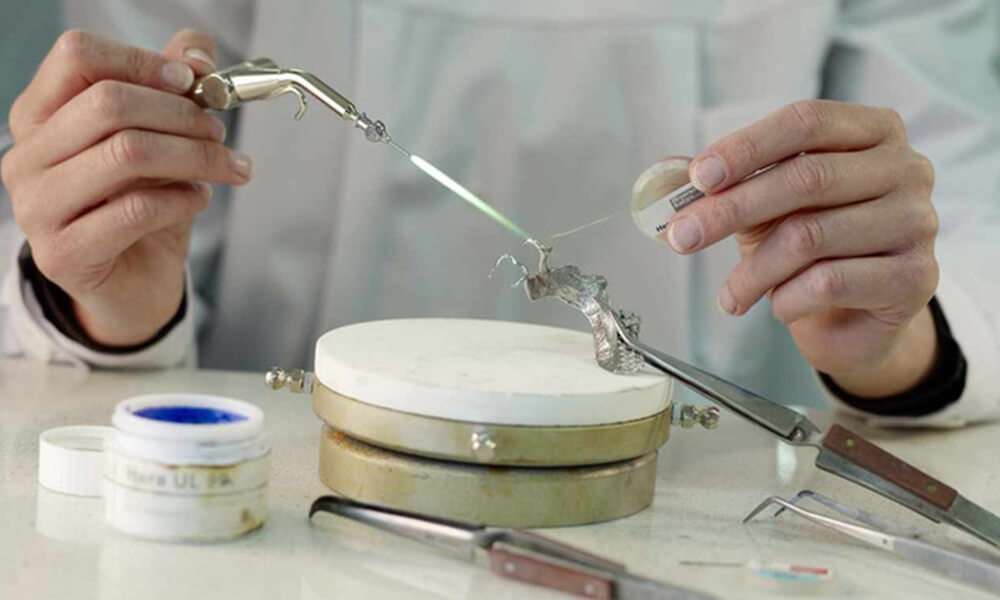
7. Can a dentist own a Dental Lab in Australia?
Absolutely. In particular, if the laboratory is situated in an establishment where a licensed dentist is present, the dentist may own and administer the dental laboratory. Come to think of it, apart from an experienced CDT, who else knows how to run a dental laboratory? Most dentists, after all, have received extensive training in laboratory procedures during their stay in dentistry and know what they want from a dental clinic.
8. Are Dental Labs profitable in Australia?
If you have an internal dental laboratory that is efficient and consistently delivers high-quality work, it can be a profitable business. Like many other industries that have replaced manual work with robotics, the medium to large dental labs that have developed and kept up with rapid technological developments will continue to thrive.
9. Does Dental Labs Australia have a presence?
Dental lab services are absolutely necessary. As the U. S. population ages, more and more patients will need everything from a single tooth to a full mouth reconstruction. Dental labs that adapt to changing technologies and offer the best restorative solutions to meet customer and patient needs are likely to flourish in the near future.
10. How much would it cost to open a Dental Lab in Australia?
There are a lot of factors involved in deciding how to open a dental lab. As with all external customers, start-up costs are incurred, including licenses, licenses, various policies, the equipment itself plus any renovations or upgrades, equipment, materials, supplies, computer monitoring and accounting systems, and labor and marketing expenses. That’s what happens before you even open the door to the store.
Now, with modern facilities and human resources, the cost of setting up a dental laboratory from scratch for external customers could easily be worth half a million dollars. That’s a conservative guess. It is necessary for you to make a rough assessment of how much money you have before deciding to open a dental lab in Australia.
11. Conclusion
The above is all about “Dental Lab Australia”. I hope you found the above information useful. For more information on Australia’s Dental Laboratory or to talk about opportunities in your current lab, please contact us here.
